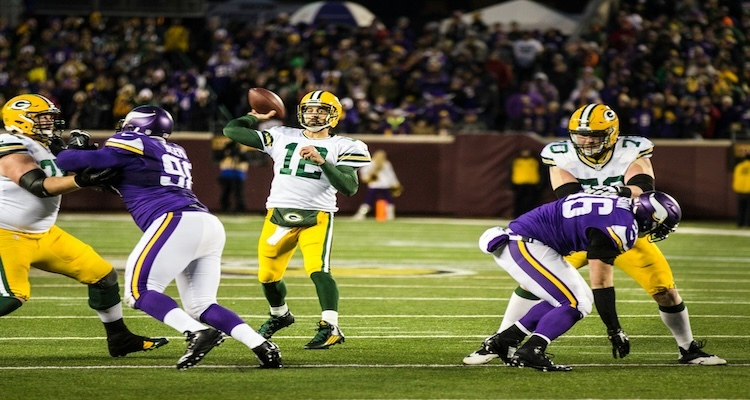
Playing American football presents several psychological challenges. The sport's high physical demands and inherent risks contribute to significant mental stress. Athletes must cope with the constant fear of injury, which can range from minor strains to concussions and long-term damage. The pressure to perform consistently at a high level can lead to anxiety and burnout.
Moreover, the competitive environment often fosters intense scrutiny from coaches, teammates, and fans, adding to the psychological burden. Players also face the challenge of maintaining focus and mental toughness in high-stakes situations, where a single mistake can alter the game's outcome.
Balancing personal life with rigorous training schedules can strain relationships and lead to feelings of isolation. Post-career transitions pose additional challenges, as athletes must navigate identity shifts and potential mental health issues like depression. Addressing these psychological aspects is crucial for the overall well-being and performance of football players.
Because of the psychological pressure working with a sport psychologist can offer numerous benefits to American football players, helping them enhance their performance, maintain mental health, and navigate the various challenges inherent in the sport. We now turn to explore how in more detail.
One of the primary benefits of working with a sport psychologist is the enhancement of performance through mental conditioning. Sport psychologists help athletes develop mental skills such as focus, concentration, and composure under pressure. Techniques like visualization and mental rehearsal can be particularly beneficial. By mentally practicing plays and scenarios, players can improve their decision-making and reaction times during actual games.
Additionally, sport psychologists teach goal-setting strategies that can keep players motivated and on track. These goals might be short-term, focusing on immediate improvements, or long-term, aiming at career milestones. Structured goal-setting helps players maintain a sense of purpose and direction, which is crucial in a sport as demanding as football.
The pressure to perform well, whether from personal expectations, coaches, teammates, or fans, can lead to significant anxiety. This anxiety can negatively impact performance, leading to a cycle of stress and underachievement. Sport psychologists work with players to develop coping mechanisms to manage this pressure effectively. Techniques such as mindfulness, relaxation exercises, and breathing techniques can help players stay calm and focused during high-pressure situations.
By learning how to manage anxiety, players can maintain a higher level of performance and enjoy the game more. This not only benefits their on-field performance but also contributes to their overall well-being.
Injuries are an inevitable part of football, and recovering from them can be as much a mental challenge as a physical one. Sport psychologists play a crucial role in helping players navigate the psychological aspects of injury recovery. This includes managing the fear of re-injury, dealing with the frustration and sadness of being sidelined, and maintaining motivation during rehabilitation.
Through counseling and mental strategies, sport psychologists help players stay positive and focused during their recovery. They also work on mental imagery techniques where athletes visualize themselves recovering and performing at their best, which can enhance the healing process and help them return to play with confidence.
Football is inherently a team sport, and the success of a team often hinges on how well its members work together. Sport psychologists can contribute to building team cohesion by fostering better communication, understanding, and cooperation among players. They conduct team-building exercises and workshops that help players develop trust and camaraderie.
A cohesive team is more likely to perform well under pressure, as players support each other and work together towards common goals. Improved team dynamics can also reduce conflicts and enhance the overall morale of the team, contributing to a more positive and productive environment.
The demands of professional football can take a toll on players’ personal lives. Long training hours, travel, and the constant pressure to perform can strain relationships and lead to feelings of isolation. Sport psychologists help players develop strategies to balance their personal and professional lives effectively. This might include time management techniques, setting personal boundaries, and developing support systems.
Maintaining a healthy work-life balance is crucial for mental health. Players who can balance their responsibilities are more likely to be satisfied and focused, both on and off the field.
The transition out of professional sports can be challenging for many athletes. The end of a football career often involves a significant identity shift, as players move away from the sport that has been a central part of their lives. Sport psychologists assist players in preparing for and navigating this transition. This includes exploring new career opportunities, developing new skills, and finding new sources of purpose and fulfillment.
Preparing for life after football is essential for long-term well-being. Sport psychologists provide the support and guidance necessary for athletes to make this transition successfully, helping them to find new passions and avoid potential mental health issues such as depression or anxiety.
Working with a sport psychologist offers American football players a comprehensive support system that addresses both performance enhancement and mental health. By developing mental skills, coping with pressure, aiding in injury recovery, fostering team cohesion, balancing life demands, and preparing for post-career transitions, sport psychologists play a vital role in the holistic development of athletes. The integration of psychological strategies into an athlete’s routine can lead to improved performance, greater mental resilience, and overall well-being, making sport psychologists invaluable to the world of American football.
We have a number of sport psychologists who advertise their services on our site. Visit our homepage for our easy to use online directory to find a sport psychologist near you.
